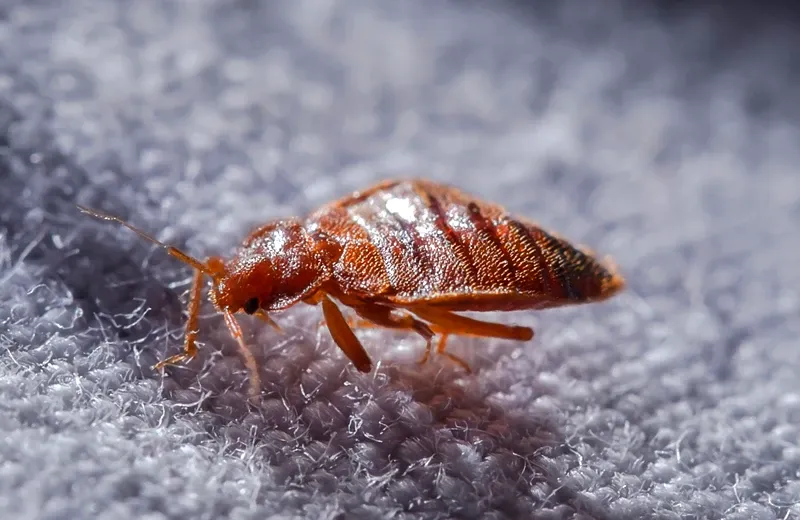Expert Kings Pest Control Services Cincinnati OH
Expert Kings Pest Control Services Cincinnati OH
Blog Article
Kinds Of Insect Control: Which Approach Is Right for Your Problem?
When encountered with a bug infestation, the choice of a suitable method for parasite control is essential in successfully handling the situation. By checking out the various types of insect control techniques available, individuals can make informed decisions customized to their special situations, making sure a more sustainable and reliable outcome in pest elimination.
Chemical Insect Control
Chemical bug control entails the use of artificial or normally acquired chemicals to take care of and eliminate pest populaces successfully. This method is frequently utilized in agriculture, forestry, and household setups to combat a wide variety of bugs, including weeds, rats, and pests. Using chemical pesticides can supply fast and targeted remedies to pest problems, making it a preferred selection for lots of individuals and services.
One of the essential advantages of chemical bug control is its capacity to promptly get rid of insects, lowering the danger of damage to plants, home, and human health. By using details chemicals that target particular pests, this method can effectively manage invasions while minimizing harm to helpful microorganisms and the setting when used properly.
However, using chemical parasite control likewise increases issues concerning possible damaging effects on non-target varieties, water sources, and human health and wellness. It is essential to comply with security standards, use chemicals sensibly, and consider alternative parasite control approaches to decrease these dangers and guarantee sustainable insect monitoring techniques.
Biological Parasite Control
Organic parasite control, also understood as biocontrol, uses living microorganisms to take care of and minimize insect populaces naturally. By utilizing the parasite's natural predators or pathogens, biological pest control offers a sustainable and environmentally friendly solution to pest management.

Mechanical Parasite Control
Making use of physical and hands-on approaches to take care of pest populaces, mechanical pest control supplies an alternative method that does not count on using living microorganisms or artificial chemicals. This method involves the use of obstacles, traps, or various other tools to literally prevent or get rid of insects. By blocking pest access points or setting up catches to catch them, mechanical parasite control can effectively decrease invasions without presenting chemicals into the environment.
One typical example of mechanical insect control is making use of mesh screens on doors and home windows to avoid bugs from getting in buildings. This easy yet efficient method acts as a physical obstacle, maintaining bugs out while permitting proper ventilation. Furthermore, gadgets like mousetraps, fly swatters, and ultrasonic repellents fall under the mechanical parasite control category.
While mechanical bug control approaches can be labor-intensive and require normal surveillance and maintenance, they use a lasting and eco-friendly remedy for handling parasite invasions. By incorporating various mechanical techniques, homeowner can produce a detailed pest control method that minimizes dependence on chemical pesticides.
Physical Parasite Control

Some usual physical parasite control techniques include the use of obstacles such as displays or nets to stop pest entrance, catches to record and eliminate parasites, and hand-picking to physically eliminate pests from rat control plants or structures. In addition, methods like heat therapies can be made use of to regulate parasites like bed pests by raising the temperature level to degrees that are lethal to the insects.
Physical parasite control is especially beneficial in incorporated insect monitoring (IPM) approaches, where several insect control approaches are integrated for efficient bug management while reducing using chemicals. By utilizing physical pest control techniques, people can successfully deal with insect invasions with very little ecological influence.
Integrated Parasite Administration
When applying physical pest control techniques as component of parasite monitoring strategies, Integrated Insect Administration (IPM) becomes a thorough approach that leverages numerous strategies to properly regulate pest populations. IPM concentrates on long-lasting avoidance of parasites through a mix of organic, cultural, visit here physical, and chemical devices customized to specific pest concerns. By integrating multiple control strategies, IPM aims to minimize the risks associated with parasites while additionally minimizing dependence on chemical options.
One secret element of IPM is the focus on tracking and analyzing pest populations to figure out the most appropriate control methods. This positive strategy permits early treatment and targeted techniques, causing more reliable pest monitoring. In addition, IPM promotes environmentally friendly practices by focusing on non-chemical control techniques and just using chemicals as a last hope.
Conclusion

By making use of the insect's natural predators or virus, biological pest control uses a eco pleasant and sustainable solution to pest administration. - Kings pest control services Cincinnati oh
Using hands-on and physical approaches to take care of insect populations, mechanical pest control provides an alternate method that does not depend on the use of living microorganisms or synthetic chemicals.A reliable method to handling bug populaces without counting on chemical or organic methods entails the usage of physical bug control techniques.When applying physical parasite control approaches as part of parasite monitoring techniques, Integrated Bug Administration (IPM) arises as a thorough strategy that leverages various techniques to efficiently regulate pest populaces. Chemical pest control entails the use of pesticides, organic pest control uses natural killers, mechanical parasite control involves physical barriers, physical pest control consists of trapping or removing insects, and incorporated parasite monitoring integrates numerous techniques for an alternative technique to pest control.
Report this page